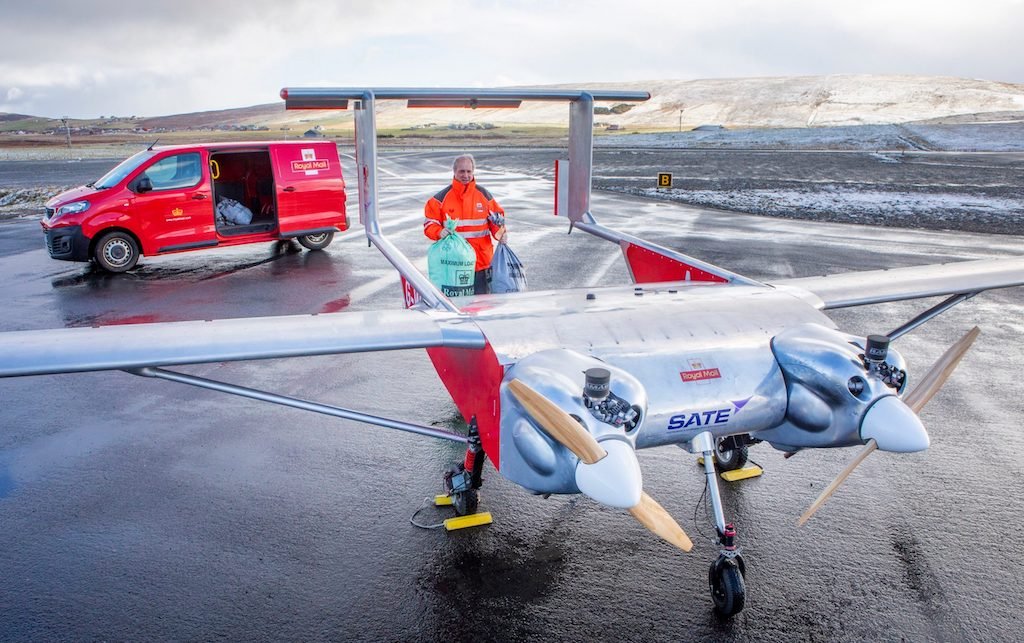Royal Mail plans to establish Scottish Island postal drone routes
The Royal Mail has announced plans to establish more than 50 new postal drone routes over the next three years, subject to Civil Aviation Authority (CAA) approval.
Island communities across the Isles of Scilly, Shetland Islands, Orkney Islands and the Hebrides would be the first to benefit.
Trials of the technology on the Orkney islands started last year as part of Royal Mail efforts to cut its carbon emissions for deliveries to remoter areas.
Longer term, the ambition is to deploy a fleet of more than 500 drones to support deliveries across the UK.
Royal Mail says the service will help it cut carbon emissions as well as improve the reliability of its remote island mail services. These currently use ferries, conventional aircraft and land-based delivery which can be affected by bad weather.
The drones will be operated in partnership with Windracers, which will operate the uncrewed aircraft.
The latest trial was held last month on the Shetland Islands with test flights between Tingwall Airport in Lerwick to Unst - a 50-mile flight each way. Unst has a population of around 630 people and is Britain’s most northerly inhabited island.
With a capability to fly in difficult weather conditions, the twin-engine UAV (unmanned aerial vehicle) used in the trial has a wingspan of 10 metres and incorporates a high-reliability autopilot system.
The drones can carry up to 100kg of mail to and from the islands on each flight, with letters and parcels then delivered by the local postal service.
Royal Mail CEO Simon Thompson said, “On-time delivery regardless of our customers’ location or the weather, whilst protecting our environment is our goal. Even though we go everywhere, Royal Mail already has the lowest CO2 emissions per parcel delivered; this initiative will help reduce our emissions even further.”
Stephen Wright, chairman at Windracers Group, said, “The middle mile of supply and logistics, especially to remote locations, has long been overlooked by the industry and is ripe for innovation.
“We’ve spent the last five years focused on developing the most commercially viable essential logistics drones so we’re truly delighted to be working with Royal Mail on this ambitious and pioneering deployment of autonomous aircraft. It puts the UK firmly at the forefront of this exciting sector.”

